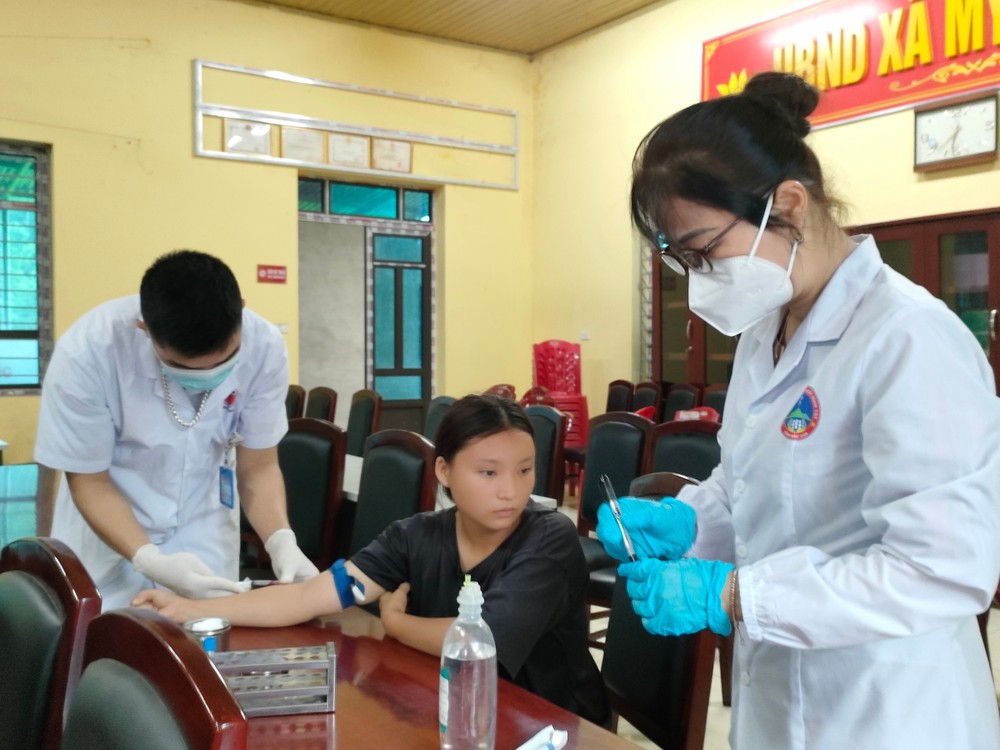
On June 13, following an incident where two people in a family from Na Lau Hamlet, My Phuong Commune, Ba Be District, Bac Kan Province, died unexpectedly and two others were hospitalized due to meningococcal meningitis, the Bac Kan Department of Health urgently implemented measures to monitor and prevent the spread of the disease in the area.
The Bac Kan Department of Health has tasked the Bac Kan Provincial Center for Disease Control with advising on meningococcal meningitis prevention activities. The center is responsible for directing and guiding professional and technical aspects, monitoring, investigating, and handling outbreaks in Ba Be District. They are also tasked with ensuring the provision of sufficient equipment, chemicals, supplies, and vaccines for the prevention of meningococcal disease.
The center must proactively and regularly provide timely and accurate information about the epidemic situation, coordinating with media agencies to enhance communication, disseminate knowledge, and issue disease prevention recommendations. Additionally, they must guide lower-level units on response plans for disease prevention and environmental sanitation and disinfection.
For Bac Kan General Hospital, it is essential to ensure the availability of facilities, isolation areas, equipment, supplies, and chemicals to promptly treat and manage cases of meningococcal disease or suspected cases. Medical staff should be deployed to support lower-level units when requested.

Health centers in the districts and cities should develop plans for preventing meningococcal meningitis, strengthen rapid response teams, and be prepared to promptly handle any outbreak situations in the area. They should closely monitor and promptly report the status of meningococcal disease in their areas to ensure timely intervention and be ready to mobilize mobile epidemic prevention teams. Additionally, they should arrange timely supplies, chemicals, and equipment to respond to any infectious disease situations that may arise.
Meningococcal meningitis is an infectious disease caused by the bacterium Neisseria meningitidis. The disease commonly presents as purulent meningitis or septicemia, which can lead to shock and death if not detected early and treated promptly. It is transmitted through respiratory droplets from the nose and throat of an infected individual, and the risk of transmission increases with co-infection with other respiratory viruses.
To prevent the disease in the community, it is crucial to maintain good personal hygiene practices. These include regularly washing hands with soap and using antiseptic solutions to gargle. Additionally, keeping living and working spaces clean and well-ventilated is essential. Vaccines for meningococcal disease groups A, B, and C are available and can be administered to children aged 2 years and older. The vaccination consists of a single dose, with a booster every three years.
























